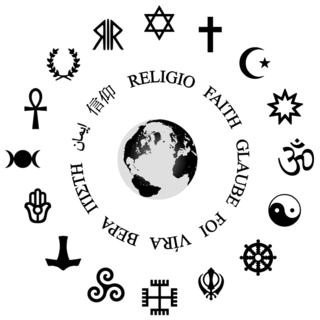This is a list of archives from around the world. An archive is an establishment that collects, stores and preserves knowledge in several formats: books, manuscripts, journals, newspapers, magazines, sound and music recordings, videos, play-scripts, patents, databases, maps, stamps, prints, drawings and more. The International Council on Archives comprises 1400 members in 199 countries.
These are lists of incumbents, including heads of states or of subnational entities.

The following outline is provided as an overview of and topical guide to religion:
This is a list of lists of universities and colleges by country, sorted by continent and region. The lists represent educational institutions throughout the world which provide higher education in tertiary, quaternary, and post-secondary education.
This page provides an index of articles on rail transport by country.

An apostolic nunciature is a top-level diplomatic mission of the Holy See that is equivalent to an embassy. However, it neither issues visas nor has consulates.
This is a list of articles holding galleries of maps of present-day countries and dependencies. The list includes all countries listed in the List of countries, the French overseas departments, the Spanish and Portuguese overseas regions and inhabited overseas dependencies.
National records in athletics are the marks achieved by a nation's best athlete or athletes in a particular athletics event. These records are ratified by the respective national athletics governing body. A national record may also be the respective continental record (also called "area record", or even the world record in that event.
The International Council of Museums defines a museum as "a not-for-profit, permanent institution in the service of society that researches, collects, conserves, interprets and exhibits tangible and intangible heritage. Open to the public, accessible and inclusive, museums foster diversity and sustainability. They operate and communicate ethically, professionally and with the participation of communities, offering varied experiences for education, enjoyment, reflection and knowledge sharing.”